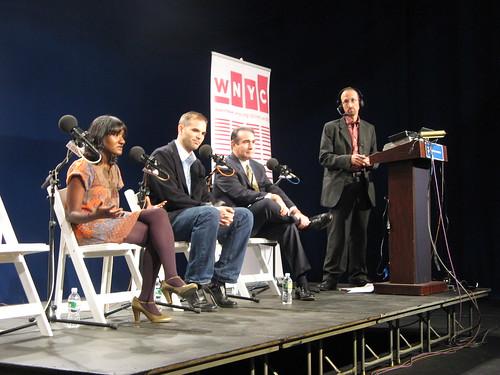Northern Virginia is one of the places where the immigration debate has been the most heated. In August, we reported on the effect of authorizing local law enforcement to inquire about the immigration status of people who are arrested. Due to stepped up enforcement the Latino population in the city of Manassas and Prince William County has plummeted.
There has also been a sharp increase in the number of people detained on immigration charges. Yesterday, the Washington Post -which has reported extensively on the immigration issue in the D.C. area- ran an article that provides a stark portrait of the system set up to deport those people.
Reporters Nick Miroff and Josh White write,
Illegal immigrants detained as part of the stepped-up enforcement effort in Virginia stay in the country far longer than they should because of a detention and deportation system beset by waste and dysfunction, according to lawyers, detainee accounts and observations of courtroom proceedings.
The article details the case of a legal immigrant from Paraguay who was kept in jail for 30 days “accused of lying about a two-decade-old criminal violation by federal agents who then misplaced his file.” He was then freed, but he told the newspaper he met inmates who had been at the Virginia Beach jail for five or ten months. His case was not an exception, the Post says,
During recent court proceedings before an immigration judge, in more than half the cases the government was missing detainee files, did not know where detainees were being held or failed to bring a detainee to a facility with proper videoconferencing equipment. In one instance, the government lost track of a nursing mother who had been separated from her newborn, thinking she was in a Hampton Roads jail; she was sitting in court a few feet away and wearing an electronic monitoring bracelet. In another case, Judge Wayne R. Iskra grew so frustrated over a detainee’s missing file that he berated the government prosecutor in open court, asking her, “How would you like to sit in jail for two more weeks?”
“The system is broken!” the judge said.
Even voluntary deportations –which we have written about before– have been problematic. One inmate apparently “has been waiting for eight months while his requests to be deported go unanswered.”
* * *
Another big-city paper addressed immigration on Sunday: the Los Angeles Times ran an editorial in which it commended Immigration and Customs Enforcement for the recent raids that netted some 1,700 illegal immigrants convicted of crimes or linked to criminal gangs. However, the paper said, the raids also demonstrated the need for comprehensive immigration reform, including legalization for most of the 12 million people estimated to be in the country illegally.
The arrests apparently were surgical strikes, not a carpet bombing of communities where illegal immigrants reside peacefully or work to feed their families. Certainly they bear little resemblance to the disruptive raids on meatpacking plants, garment factories and other businesses with large, undocumented workforces. Those operations, which seem motivated by a desire to prove that the government is tough on illegal immigration, disrupt the lives of the very families that would be legalized under comprehensive reform legislation.
While approving of the arrests of “gangbangers, gunmen and child molesters,” the paper warned that “under the law, even illegal immigrants without criminal records can be detained and deported.
That reality complicates efforts to combine law enforcement and immigration control. No doubt many of the young men arrested in the sweep deserve the designation of gang member, but the term “gang associate” is disturbingly vague. As long as the defining characteristic of those arrested is their illegal status, even the most carefully designed dragnet risks pulling in innocent friends or relatives of gang members.








